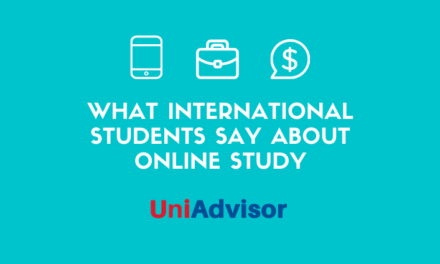Julie Hare discusses the findings of a report from the International Alumni Job Network that details the experience of overseas students – and whether they would recommend their place of study to others.
The annual Australian International Education Conference (AIEC) is on in Sydney this week. It’s the antipodean equivalent of the US’s NAFSA conference, drawing thousands of delegates from around Australia and overseas.
The conference kicked off the morning after the night before (when our greatest cultural icon, the Sydney Opera House, was used as a billboard for a horse race). Despite the ridiculousness of so much of Australian political and media life, people still want to come here to study – in their droves.
Only coal and iron ore exports exceed the value of international education on our balance of payments. We have the third largest number of international students after the US and UK, but the highest proportion in our universities. In his opening remarks to the conference, Education Minister Dan Tehan said predictions were that Australia would leapfrog the UK next year in terms of the sheer number of enrolments.
Certainly, the force is with us. In July, there were 627,000 international students in Australia, 11% more than the same time in 2017. There appears to be no end in sight to the upward trajectory in enrolments, save for an ugly and potentially harmful spat between the Australian and Chinese governments over Chinese political influence on campuses and with actual politicians (Google Sam Dastyari, if you are interested).
What alumni think
Ahead of the conference, the International Alumni Job Network released some fascinating insights into overall satisfaction, job outcomes and sources of pre-enrolment information for students from eight Asian countries who had studied in Australia, the US, UK, Canada, Europe and New Zealand. Considering it collected responses from 10,787 alumni, one should be confident of the robustness of the results. A copy of the full report is available on request from the IAJN.
First up, the some of the more obvious findings: 80% of students said they studied overseas to improve their career prospects. More than 50% were funded by their families to do so and 87% studied either a bachelors or masters degree. Equal numbers of students made their choice of university based on either location or ranking, while 32% said price was the important factor. No surprises there.
Sources of information
Shane Dillon, founder of the IAJN, told Wonkhe there is a direct and clear correlation between the source of pre-enrolment information and satisfaction levels. Those who get their information from alumni get a more truthful account of the realities of studying in a certain country, city, institution and discipline and were more likely to report high satisfaction with their overall experience.
The opposite was true for the majority who relied on information from university websites and contacts or agents for their information, the implication being that reality might be presented with a rose-tinted glow that doesn’t measure up in the harsh light of day. Given that 75% of students come to Australia via agents should raise a few alarm bells about the veracity of the marketing hype that’s being put out there.
Roads to residency
Some other interesting findings include that 10% of alumni said motivation to study overseas was based the possibility of using it as a pathway to migration (and 6% said it was because their parents told them to do it).
That’s an interesting point for Australia which a decade ago had student visas firmly linked to permanent residents (since decoupled) but which now offers relatively generous post-study work rights. A debate is gathering steam here about requiring half of all new migrants (and a good proportion of students) to move to rural and regional areas and the less-populous states.
Tehan again flagged the government is keen on getting students out of the Golden Triangle (Melbourne, Sydney and Brisbane) and would rather see at least some of them go to “Bathurst, Bendigo or Bundaberg”. His speech glossed over any detail (on anything really) and didn’t give any hint about how the government might work with the sector and local communities to achieve this.
While regional universities are jumping for joy at the suggestions, others reckon it would just lead to students choosing to study in another country. However, senior figures have suggested to Wonkhe that the idea has legs because it would drive the growth in enrolments into regional areas (some of which are very pretty) rather than cannibalising existing enrolment numbers. (That same senior figure also said: “All universities do is whinge, whinge, whinge!”
Anyway, back to the IAJN survey. The UK scored the lowest on satisfaction for return on investment and also for post-study work rights (yes, I know, it’s a big debate over here at the moment). Indian students, generally, were the least satisfied. Less than half considered their overseas education a worthy return on investment, while only 75% said they had a positive international experience. Dillon reckons this is probably related to where they are getting their initial information from and how accurate it is.
Overall, students were happiest with Canada.
Word of mouth
In a rather worrying finding, only 40% of students said they actively recommend their destination country to friends and just over one third (36%) said they recommended their institution. And the UK should take note that one in four alumni said they actively encouraged others not to study there.
New Zealand got by far the biggest thumbs up among alumni with 45% saying they actively promoted it as a destination. The report also covers a raft of other graduate outcomes and satisfaction measures, including salary outcomes on returning home according to place of study and discipline.
This was Tehan’s first major outing as minister and he failed to impress. It was a stock standard political speech written by people who don’t know the sector for an audience who knows it intimately.
The speech wasn’t awful. But it could have been a lot more assertive, insightful and inclusive.
By Julie Hare
This content was found at https://wonkhe.com/blogs/the-lure-of-an-overseas-education/






Recent Comments